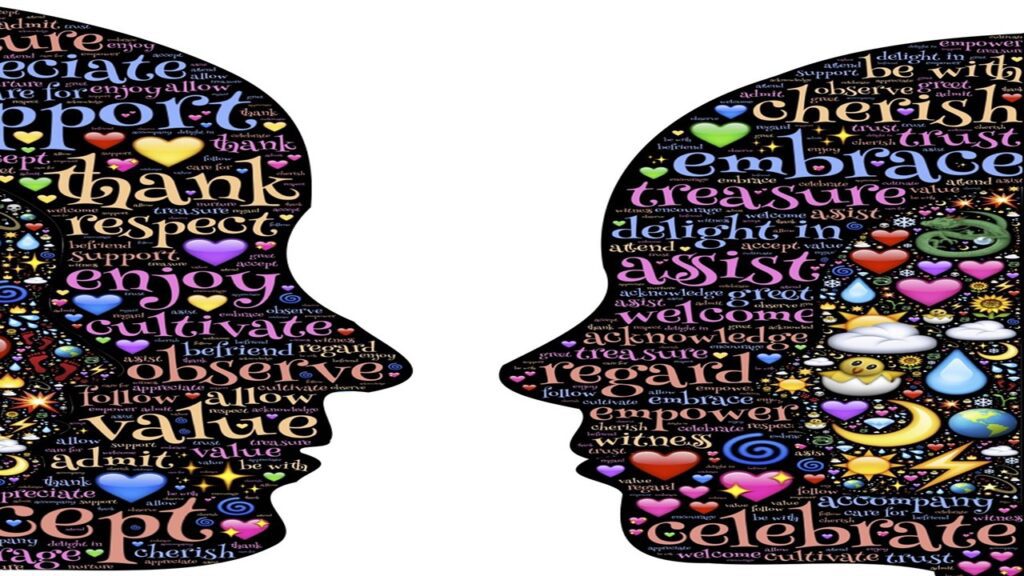Understanding and Managing Emotions During Pregnancy

Emotions during pregnancy generate feuds among couples of unknown proportions. Pregnancy is an extraordinary journey filled with physical changes, but it’s equally important to acknowledge the emotional changes that occur during this transformative time. While the focus is often on the physical aspects of pregnancy, the emotional well-being and mental health of an expectant mother are equally crucial. In this comprehensive guide, we will explore the various emotions that women may experience throughout pregnancy and provide strategies for managing and understanding these feelings.
1. The Rollercoaster of Mood Swings
One of the most common emotional experiences during pregnancy is mood swings. Many women describe this as a rollercoaster of emotions, ranging from elation to irritability. It is essential to recognize that mood swings are entirely normal during pregnancy. A 2019 study published in the Archives of Women’s Mental Health found a high frequency of mood instability among pregnant and postnatal women1. The transition to motherhood brings about a complex mix of emotions, both positive and negative.
The exact cause of mood swings during pregnancy is not entirely clear. Hormonal changes play a significant role, as varying levels of estrogen, progesterone, and stress hormones can affect a woman’s emotional state2. Some women may be more sensitive to changes in estrogen, while others may be influenced by rising levels of progesterone. The early and late stages of pregnancy are particularly known for triggering mood swings, although the intensity and frequency can vary among individuals.
To manage mood swings, it is crucial for women to be aware of their thoughts and feelings. Finding a safe space to talk about these emotions and work through them can be immensely beneficial. Whether it’s confiding in a supportive partner, seeking guidance from a healthcare professional, or joining a pregnancy support group, sharing experiences and emotions can help alleviate the emotional burden.
2. Fear and Anxiety: Navigating Uncertainties
Pregnancy often brings about a heightened sense of fear and anxiety. The biological response in the brain amplifies both the anxiety and fear systems during this period3. Expectant mothers may worry about various aspects, such as labor pain, the stability and surety of their relationship, potential complications during delivery, and the general well-being of their baby.
The uncertainty surrounding pregnancy can fuel fearful thoughts, as women may feel a lack of control over their bodies and the future(will the partner be there for her?). This is particularly relevant during times of crisis, such as the COVID-19 pandemic, which has resulted in increased levels of fear and anxiety among pregnant women4. It is important to note that women who have experienced anxiety in the past may be more prone to anxiety during pregnancy due to heightened stress levels5.
Research has shown that a mother’s anxiety during pregnancy can potentially impact the baby. A study conducted in 2013 found that infants born to mothers with high levels of anxiety had a weakened immune response to vaccines by six months of age6. However, there are strategies that can help manage anxiety during pregnancy, such as mindfulness practices. A study conducted in 2020 reported that mindfulness practices, including meditation and being present in the moment, reduced maternal anxiety7. Incorporating mindfulness into prenatal programs can be beneficial in reducing maternal anxiety levels.
3. “Pregnancy Brain”: Coping with Forgetfulness
Forgetfulness is a common phenomenon during pregnancy, often referred to as “pregnancy brain” or “baby brain.” Many pregnant women experience mental fogginess and occasional memory lapses, leading to misplaced items and forgetfulness8.
The exact cause of “pregnancy brain” is not fully understood. Hormonal fluctuations, particularly higher levels of progesterone, have been suggested as a contributing factor9. Additionally, factors such as sleep deprivation, the stress of adjusting to major life changes, and the brain’s plasticity during pregnancy may also play a role10.
It is important for pregnant women to be kind to themselves and not overly criticize their forgetfulness. The combination of physical changes in the body and the multitude of thoughts running through the mind can understandably lead to lapses in memory. Prioritizing tasks, practicing good organizational skills, and seeking support from loved ones can help alleviate the impact of forgetfulness.
4. Weepiness: Emotional Release and Its Significance
Many pregnant women find themselves more emotionally sensitive and prone to weepiness. Crying easily at heartwarming moments or feeling overwhelmed after experiencing morning sickness is not uncommon during pregnancy. These emotional outbursts are often a result of the complex mix of emotions that come with the journey of pregnancy11.
Fluctuating hormone levels can contribute to increased tearfulness during pregnancy. It is important to note that excessive and persistent crying may be a symptom of depression, which affects approximately 7% of women during pregnancy12. Depression during and after pregnancy is a serious condition that can have health consequences for both mother and baby. Seeking help from healthcare professionals is crucial if persistent sadness or depressive symptoms are present.
5. Negative Body Image and Self-Esteem
The physical changes that accompany pregnancy, such as weight gain and the visible baby bump, can significantly impact a woman’s body image and self-esteem. While some women embrace these changes and feel radiant, others may struggle with feelings of dissatisfaction and concerns about regaining their pre-pregnancy figures13.
It is essential to acknowledge that changes in appearance and perceived attractiveness can evoke a range of emotions. The key is to address these body-image concerns and promote self-acceptance and self-care. Engaging in positive self-talk, surrounding oneself with a supportive network, and focusing on the miraculous journey of growing a life can help improve body image and self-esteem during pregnancy.
6. Understanding Hormonal Changes and Emotional Well-being
Hormonal changes play a significant role in emotional experiences during pregnancy. The increased production of estrogen and progesterone is essential for maintaining a healthy pregnancy, but it can also lead to unwanted side effects such as mood swings14.
Educating oneself about the hormonal changes occurring in the body can help women better understand and manage their emotions. Seeking information from reliable sources, such as healthcare professionals or reputable websites, can provide valuable insights into hormonal fluctuations and their impact on emotional well-being.
7. Coping Strategies and Self-Care
Managing and understanding emotions during pregnancy is crucial for the overall well-being of expectant mothers. Here are some strategies and self-care practices that can help navigate the emotional ups and downs:
a. Self-Care and Listening to Your Body
Taking care of oneself is essential during pregnancy. Listening to your body and being aware of your needs is crucial. Whether it’s indulging in a relaxing bubble bath, carving out time for hobbies or activities that bring joy, or simply prioritizing rest and relaxation, self-care plays a vital role in emotional well-being.
b. Prioritizing Sleep
Getting sufficient sleep is crucial for emotional stability. Although sleep disturbances are common during pregnancy, making an effort to establish a consistent sleep routine and creating a comfortable sleep environment can enhance sleep quality. Discussing any sleep difficulties with healthcare professionals can provide further guidance and support.
c. Nourishing your Body and Mind
Maintaining a healthy diet can positively impact both physical and mental health. Choosing natural and nutrient-rich foods can contribute to emotional stability and overall well-being. Avoiding processed foods and incorporating foods known for their mood-boosting properties, such as dark chocolate and omega-3 fatty acids, can be beneficial.
d. Seeking Support and Open Communication
Building a support network is essential during pregnancy. Sharing emotions, concerns, and experiences with trusted individuals, whether it be a partner, family member, or healthcare professional, can provide a sense of relief and validation. Joining pregnancy support groups or attending prenatal classes can also create a supportive community and offer valuable insights and coping strategies.
e. Engaging in Gentle Exercise and Relaxation Techniques
Engaging in gentle to moderate exercise can have a positive impact on mood and overall fitness during pregnancy. Activities such as prenatal yoga, swimming, and walking can improve emotional well-being and prepare the body for labor15. Additionally, relaxation techniques such as deep breathing exercises, meditation, and mindfulness can help manage stress and promote emotional balance.
f. Embracing Mindfulness and Living in the Present Moment
Practicing mindfulness techniques can assist in managing overwhelming emotions. Being fully present in the moment and accepting thoughts and feelings without judgment can help reduce anxiety and improve overall emotional well-being. Mindfulness exercises, such as body scans and guided meditations, can be integrated into daily routines.
g. Exploring Emotional Release Through Creative Outlets
Engaging in creative outlets such as journaling, art, or music can provide a healthy outlet for emotional release. Writing down thoughts and feelings, expressing oneself through artistic mediums, or simply listening to soothing music can help process and manage emotions during pregnancy.
8. Recognizing When Additional Support is Needed
While emotional fluctuations are a normal part of pregnancy, it is essential to recognize when additional support may be required. If emotions become overwhelmingly intense or persistently negative, seeking professional help is crucial. Healthcare professionals, such as midwives or therapists specializing in perinatal mental health, can provide guidance and support for managing emotional challenges during pregnancy.
It is important to differentiate between regular pregnancy emotions and mental health issues. Approximately one in eight women experience depression or anxiety during pregnancy16. Additionally, approximately one in ten expectant fathers experience antenatal depression17. Understanding the range of mental health symptoms that can occur and being aware of available support services is crucial for overall well-being.
9. The Journey of Pregnancy: Embracing the Emotional Experience
Pregnancy is a unique and transformative experience that encompasses a wide range of emotions. It is important to embrace the emotional journey, acknowledging that each woman’s experience is unique and valid. By understanding the factors that contribute to emotional changes during pregnancy and implementing strategies for self-care and emotional management, expectant mothers can navigate this remarkable period with greater ease and well-being.
10. Conclusion
Pregnancy is not just a physical journey but an emotional one as well. Understanding and managing the emotions that arise during this transformative time is essential for the well-being of expectant mothers. By recognizing the hormonal changes, addressing common emotional experiences such as mood swings and anxiety, and implementing self-care strategies, women can navigate the emotional rollercoaster of pregnancy with greater resilience and enjoyment. Remember, seeking support and professional help when needed is a sign of strength and an important step toward emotional well-being during pregnancy.
Disclaimer: The information provided in this article is for informational purposes only and should not be considered a substitute for professional medical advice. Always consult with a qualified healthcare provider for personalized guidance and care.

